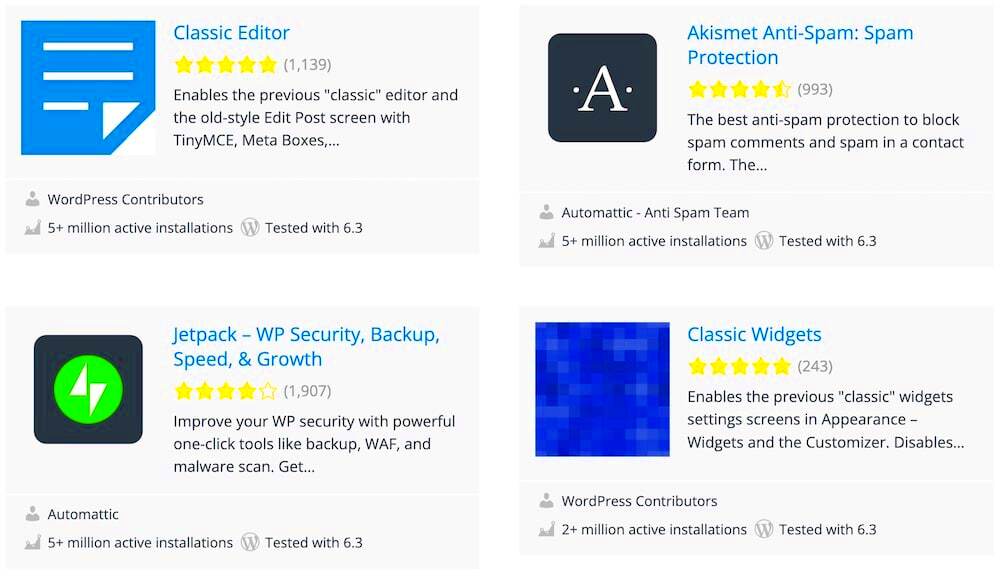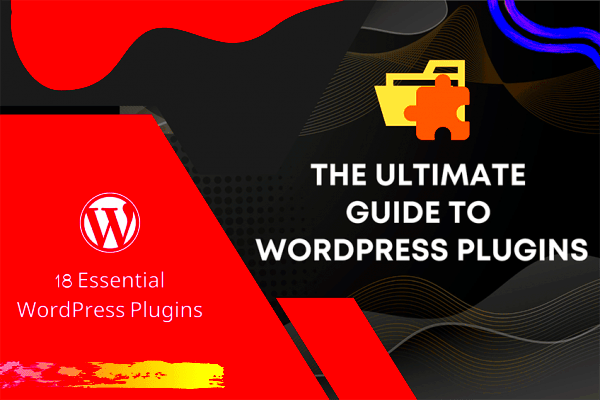Search engine optimization (SEO) is crucial for driving organic traffic to your WordPress website. Luckily, WordPress plugins can help optimize your website for search engines without requiring advanced technical knowledge. These plugins offer a variety of tools to boost your site’s visibility and ranking. Here’s a look at some of the top SEO plugins and how they can help:
- Yoast SEO: One of the most popular SEO plugins, Yoast SEO helps you optimize on-page elements like titles, meta descriptions, and keywords. It also provides readability analysis and suggestions for improvement.
- All in One SEO Pack: This plugin is another great option for on-page SEO. It includes features like XML sitemaps, social media integration, and automated meta tags.
- Rank Math: Rank Math is known for its advanced features, including schema markup and deep integration with Google Analytics. It offers an intuitive user interface and helps improve your website’s content optimization.
- SEMrush: While not a traditional WordPress plugin, the SEMrush integration helps you analyze SEO performance, identify competitors, and find keyword opportunities for your site.
These plugins streamline the SEO process, making it easier to optimize your website for search engines. By using the right combination of SEO plugins, you can improve your site’s visibility and attract more traffic.
Using Plugins to Improve Website Performance

Website performance is a critical factor for both user experience and SEO. A slow website can lead to high bounce rates, lower search rankings, and dissatisfied visitors. Fortunately, WordPress plugins can significantly enhance your website’s speed and overall performance. Here’s a breakdown of some key performance-enhancing plugins:
- W3 Total Cache: This plugin improves website load time by caching your pages and reducing server load. It works well with content delivery networks (CDNs) and helps optimize browser caching.
- WP Rocket: WP Rocket is a premium plugin that offers powerful caching features, image optimization, lazy loading, and database cleanup. It’s simple to set up and ensures faster page loads.
- Smush: Smush is an image optimization plugin that compresses and resizes images without sacrificing quality. This helps in reducing page load time, especially on image-heavy websites.
- Autoptimize: Autoptimize optimizes your website’s HTML, CSS, and JavaScript files by minifying them and improving the loading time of your pages.
- Lazy Load by WP Rocket: This plugin helps improve performance by only loading images and videos when they are visible in the user’s viewport, reducing initial page load times.
By integrating these performance-enhancing plugins, you can make your WordPress website faster, more responsive, and capable of handling more traffic. Faster load times directly improve the user experience and positively impact SEO rankings.
Customizing WordPress with Plugin Development
While there are thousands of pre-built plugins available for WordPress, sometimes you need something tailored to your unique needs. Custom plugin development allows you to create plugins that are perfectly aligned with your website’s functionality and objectives. Here’s how custom plugins can help you personalize your WordPress site:
- Unique Features: Custom plugins can add features that are not available in off-the-shelf plugins. For instance, a bespoke booking system or a custom post type for a specific type of content can be created.
- Better Integration: Custom plugins ensure seamless integration with other tools and platforms specific to your business, such as customer relationship management (CRM) systems or payment gateways.
- Enhanced Performance: A well-optimized custom plugin can run faster and more efficiently than third-party alternatives, which may contain excess features that are not needed for your website.
- Improved Security: Custom plugins can be developed with robust security features, reducing the risk of vulnerabilities and making your website less prone to hacks.
- Complete Control: With custom plugins, you have complete control over updates, features, and compatibility, meaning you can continuously evolve your WordPress website to meet business needs.
Custom plugin development provides the flexibility to create the perfect solution for your website. Whether it’s adding unique functionality or improving existing features, custom plugins ensure that your WordPress site meets your exact requirements.
Popular Plugins for WordPress Websites
WordPress plugins are essential for customizing and optimizing your website. With thousands of options available, choosing the right ones can feel overwhelming. However, there are a few plugins that stand out for their versatility and usefulness across a variety of websites. Here’s a list of popular plugins that WordPress website owners commonly use:
- Yoast SEO: A must-have for improving on-page SEO, Yoast SEO helps optimize your content for search engines and enhances your website’s visibility. It offers suggestions for keyword usage, meta tags, readability, and more.
- WooCommerce: For ecommerce websites, WooCommerce is the go-to plugin. It allows you to sell products online with features like inventory management, secure payments, and order tracking.
- Elementor: A powerful page builder, Elementor enables you to create beautiful, custom layouts without needing to code. Its drag-and-drop interface makes it easy to design responsive websites.
- Akismet Anti-Spam: To prevent spam comments from cluttering your website, Akismet automatically checks and filters out suspicious submissions, keeping your site clean and user-friendly.
- WPForms: WPForms is a user-friendly plugin for creating contact forms, survey forms, and other types of interactive forms. It integrates seamlessly with email marketing tools and CRMs.
- WP Super Cache: Speed up your website by caching your pages with this plugin. It improves your website’s load time by serving static HTML files instead of processing PHP scripts with each page load.
- UpdraftPlus: This backup plugin makes it easy to protect your website by creating regular backups that can be stored remotely on cloud services like Google Drive or Dropbox.
These plugins can greatly enhance your WordPress website’s functionality, improve user experience, and help optimize performance. Depending on your site’s needs, there are plenty of other plugins to explore, but these are some of the most trusted options available.
FAQ
Q: What are WordPress plugins?
A: WordPress plugins are pieces of software that can be added to your WordPress site to extend its functionality. They allow you to add features like SEO tools, social sharing buttons, forms, security measures, and more.
Q: How do I install a WordPress plugin?
A: To install a plugin, go to your WordPress dashboard, click on “Plugins,” then “Add New.” From there, you can search for the plugin you want, click “Install Now,” and then activate it once the installation is complete.
Q: Are all WordPress plugins free?
A: While many WordPress plugins are free, some offer premium versions with additional features. These premium plugins often come with added support, advanced customization options, and more integrations.
Q: How many plugins should I use on my WordPress site?
A: There’s no set number of plugins you should use, but it’s important to avoid overloading your site with too many. Excessive plugins can slow down your site, so only install the ones you need and ensure they are regularly updated.
Q: Can plugins affect my website’s performance?
A: Yes, plugins can affect performance. Some plugins can slow down your website if they are poorly coded or if too many plugins are installed. Always choose well-maintained, lightweight plugins and remove any unnecessary ones.
Conclusion
Plugins are powerful tools that can enhance your WordPress website’s functionality, performance, and user experience. From improving SEO to speeding up your site or adding custom features, plugins make it easier to optimize and customize your website without needing to write code. However, it’s essential to choose plugins wisely to avoid overloading your site or facing security issues.
Always make sure to install only the plugins that are necessary, keep them updated, and choose reliable options with good support. Whether you’re building a simple blog, an ecommerce store, or a custom-built website, there are plugins available to help meet your needs. By leveraging the power of plugins, you can create a highly functional and efficient WordPress website that offers a great user experience.



